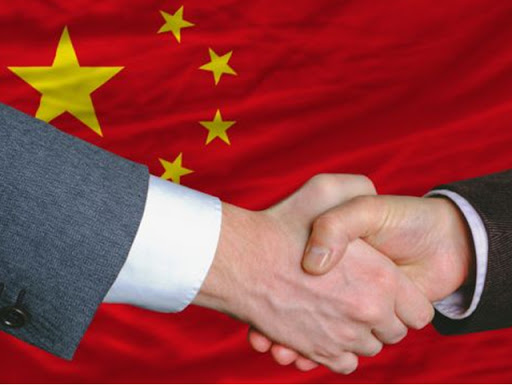China's diplomatic philosophy

Hua Minchao
Many contemporary international relations scholars are used to dividing diplomacy of various countries into ideal diplomacy and realistic diplomacy; the former corresponds to liberalism of international relations theory and emphasizes win-win cooperation while the latter tends to realism and emphasizes interest competition.
However, the reality is that the motivations of foreign policies of various countries are not consistent with each other's interpretations after their implementation. For example, people usually call the fourteen-point principle of US President Wilson idealistic diplomacy. However, some scholars pointed out that the reason why the United States tried to establish the League of Nations was to gain international leadership and serve the interests of the United States. Therefore, putting a simple concept above diplomacy is tantamount to spying. So, are the diplomatic trends of various countries completely unpredictable? The answer is no.
Edmund Burke, a British political scholar, pointed out that "habit cohesion" will affect the operation of political institutions. Behind the diplomacy of each country is the accumulation of culture and history of each country, which has its own philosophical way. China's diplomatic philosophy can be expressed in three sentences of Confucius, First, Do not impose upon others what you yourself do not desire; Second, Desiring to take his stand, one who is Good helps others to take their stand; wanting to realize himself, he helps others to realize themselves; Third, if those who are distant will not submit, simply refine your culture and Virtue in order to attract them. Once you have attracted them, you should make them content
Firstly, Do not impose upon others what you yourself do not desire. Today, when many countries in the world look at China's rise, their feelings are mixed, and they worry that China will be bossed around like the former Western colonial empire, and engage in hegemonism. As everyone knows, almost every Chinese has experienced the education about the history of humiliation for a hundred years, and the pain once inflicted on Chinese people still makes it difficult for many people to let go. Therefore, it is unwilling for Chinese people to impose what they hate on others, and a modern civilization will not allow it.
Secondly, Desiring to take his stand, one who is Good helps others to take their stand; wanting to realize himself, he helps others to realize themselves. In recent years, with the change of China's foreign policy from keeping a low profile to striving for success, this is the truth. With the rapid development of China's economy, we are more willing to share our own development experience. Chinese president Xi Jinping also mentioned many times that people from all over the world are welcome to take the "express train" and "free ride" developed by China. When the world is facing climate problems, ecological problems, terrorism problems, etc., we put forward the concept of community of human destiny in a timely manner, expressing the expectation of interdependence and common development.
Thirdly, if those who are distant will not submit, simply refine your culture and Virtue in order to attract them. Once you have attracted them, you should make them content. Facing possible criticism and controversy, China's diplomacy has always advocated peaceful settlement. Enemy at the Gates, military aggression has never been China's political philosophy. In thousands of years of history, "self-cultivation, ruling the country and leveling the world" has always been the dream of Chinese scholars, and self-cultivation is the first priority. China believes that only by doing a good job, there will naturally be more and more friends. Mencius also said that "there is more help from the truth".
Last but not least, in today's globalization, as Volz, a realist scholar, said, everyone is in a complex international structure, and changes in the system will also cause changes in the corresponding national decision-making. However, understanding the philosophical logic behind diplomacy will help us find the essence in the complicated diplomatic phenomena and help us to understand the behaviors of various countries. For China, expounding its diplomatic philosophy is an active attempt to break the "China threat theory" and build a community of human destiny.
(Hua Minchao is a scholar at the Southwest University of Political Science and Law, P.R.China)
Recent News

Do not make expressions casting dout on election: EC
14 Apr, 2022
CM Bhatta says may New Year 2079 BS inspire positive thinking
14 Apr, 2022
Three new cases, 44 recoveries in 24 hours
14 Apr, 2022
689 climbers of 84 teams so far acquire permits for climbing various peaks this spring season
14 Apr, 2022
How the rising cost of living crisis is impacting Nepal
14 Apr, 2022
US military confirms an interstellar meteor collided with Earth
14 Apr, 2022
Valneva Covid vaccine approved for use in UK
14 Apr, 2022
Chair Prachanda highlights need of unity among Maoist, Communist forces
14 Apr, 2022
Ranbir Kapoor and Alia Bhatt: Bollywood toasts star couple on wedding
14 Apr, 2022
President Bhandari confers decorations (Photo Feature)
14 Apr, 2022










